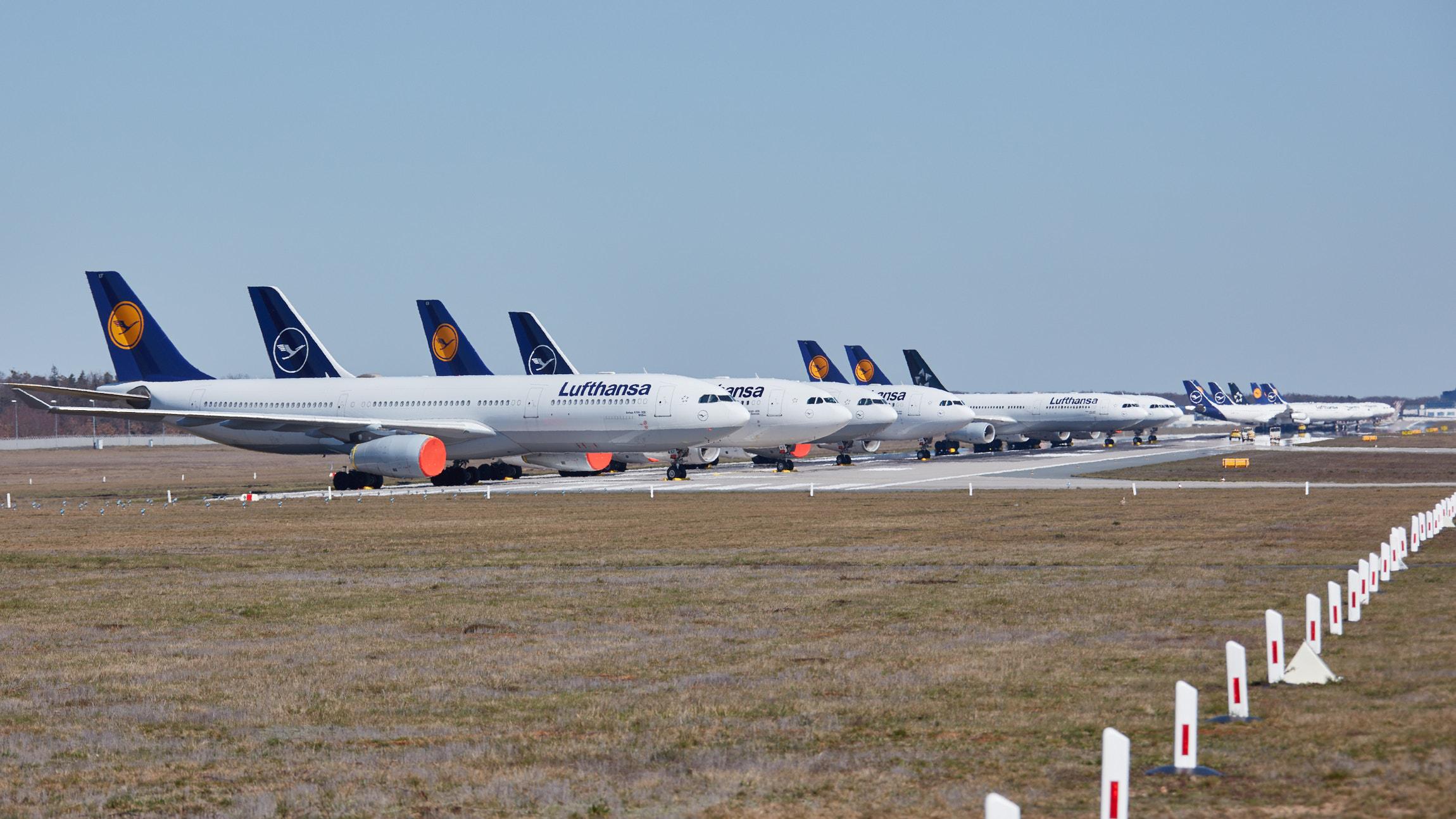
FRANKFURT—Lufthansa Group said April 23 that it needs financial assistance by its home countries to be able to survive as it cannot get sufficient access to additional liquidity in financial markets.
“In view of the business outlook, existing multibillion liabilities related to trade payables and refunds of canceled tickets as well as upcoming repayments of financial liabilities, the Group expects a significant decline in liquidity in the coming weeks,” the company said in a regulatory filing after the European market close. Lufthansa “does not expect to be able to cover the resulting capital requirements with further borrowings on the market. The Group is therefore in intensive negotiations with the governments of its home countries regarding various financing instruments to sustainably secure the Group’s solvency in the near future.” Management is “confident that the talks will lead to a successful conclusion.”
Lufthansa currently has €4.4 billion ($4.8 billion) in liquidity and is burning through around €1 million per hour amid the COVID-19 crisis, CEO Carsten Spohr said in a recent video message to employees. “At present, it is not possible to foresee when the Group airlines will be able to resume flight operations beyond the current repatriation flight schedule,” the company said in the filing.
According to sources close to the talks, Lufthansa can be all but certain to receive aid by the German government and the governments of Austria, Switzerland and Belgium, where Lufthansa’s main subsidiaries Austrian, Swiss and Brussels Airlines are based.
“The main risk is not a lack of state aid, but this aid being equity,” said Bernstein airline analyst Daniel Roeska in a note to clients. “In our view, it is in politicians’ interests in Germany, Austria, Switzerland and Belgium to provide liquidity assistance to Lufthansa in order to support their industrial sectors as they emerge from the crisis ... allowing the carrier to go bust would be self-defeating. The risk to shareholders, however, is that this aid is only available as equity (in whole or in part). Our base case would be that additional borrowings are offered for now—potentially a convertible bond—but this is not assured.”
Roeska points out that “the aviation shake-out is gaining pace, with by our count four bankruptcies this week [Air Mauritius, SpiceJet, LGW and Virgin Australia]. Lufthansa’s liquidity is running out and it cannot raise the funds to survive on the open market, even with around €10 billion worth of unencumbered aircraft.”
In Roeska’s view, if even Lufthansa is unable to raise money given the large share of owned aircraft in its fleet “we can only imagine the dire situation facing weaker carriers in Europe and we expect to hear more about carriers seeking state aid in the coming days and weeks. If the company cannot raise funds even secured against its aircraft, we doubt others can raise much on credit markets.”
Lufthansa announced a €1.2 billion adjusted operating loss for the 2020 first quarter as revenues declined by 18%. In March, sales were down 47% as the negative effects of COVID-19 began to unfold. The airline currently flies around 2% of its normal schedule. Several of its subsidiaries like Austrian or Brussels Airlines are essentially completely grounded.





